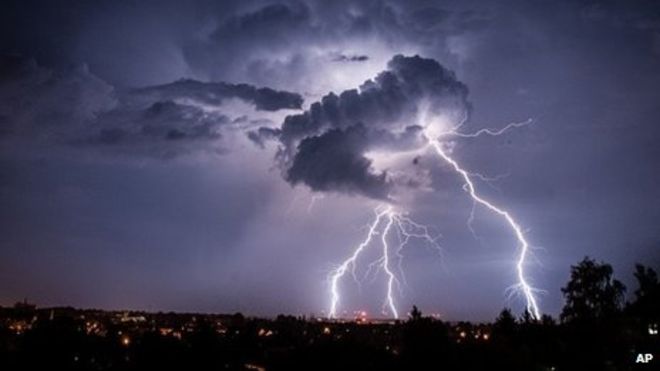
Lightning kills Ofori Panin student, another in critical condition
A student of Ofori Panin Senior High School (Opass) in the Eastern region has died after being struck by lightning at the school's campus on Sunday night while his colleague who survived is in critical condition at the Tafo Community Hospital.
The body of the deceased student has since been deposited at the Tafo Government Hospital awaiting an autopsy.
The Eastern Regional Police Public Relations Officer (PRO), ASP Ebenezer Tetteh has confirmed that thunder struck both students while they were in their dormitory on Sunday night.
He said: "The Police was informed yesterday at about 10 pm, around same time there was a thunder that struck the Tafo area where Ofori Panin Senior Secondary School is situated and two students who were in the dormitory as at the time were struck, one died instantly and the other is in critical condition receiving treatment at a hospital at Kukurantumi.
"The body of the deceased has been deposited at the Tafo Government Hospital awaiting autopsy since it is an unnatural death post-mortem will have to be done to determine the actual cause of death".
According to him, the Police is currently making strenuous efforts to contact the families of the two students.
"Meanwhile, the families of the student who is in critical condition as well as the deceased person have not contacted Police yet but we are making strenuous efforts to reach them through the Headmaster of the school," he added.
The impact of a lightning strike
Lightning is not only spectacular, it’s dangerous. About 2,000 people are killed worldwide by lightning each year. Hundreds more survive strikes but suffer from a variety of lasting symptoms, including memory loss, dizziness, weakness, numbness, and other life-altering ailments.
Strikes can cause cardiac arrest and severe burns, but 9 of every 10 people survive. The average American has about a 1 in 5,000 chance of being struck by lightning during a lifetime.
Lightning's extreme heat will vaporize the water inside a tree, creating steam that may blow the tree apart. Cars are havens from lightning—but not for the reason that most believe. Tires conduct current, as do metal frames that carry a charge harmlessly to the ground.
Many houses are grounded by rods and other protection that conduct a lightning bolt's electricity harmlessly to the ground. Homes may also be inadvertently grounded by plumbing, gutters, or other materials. Grounded buildings offer protection, but occupants who touch running water or use a landline phone may be shocked by conducted electricity.
